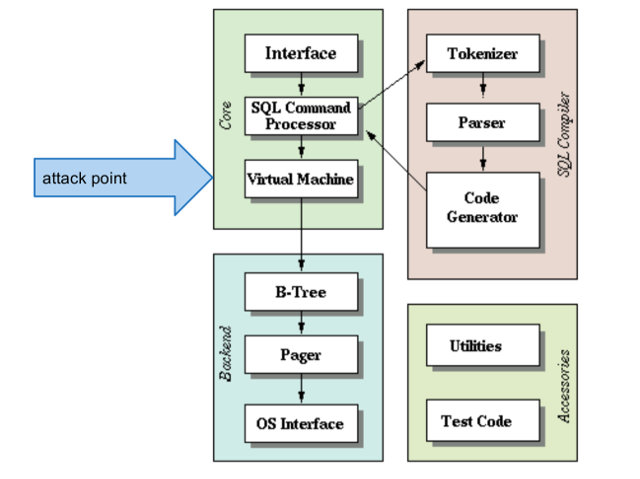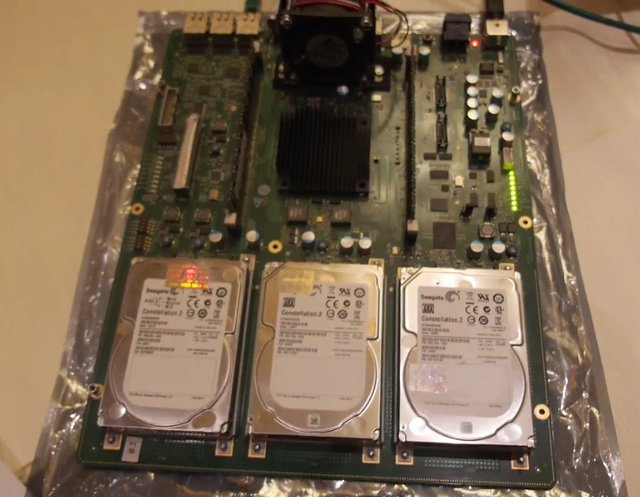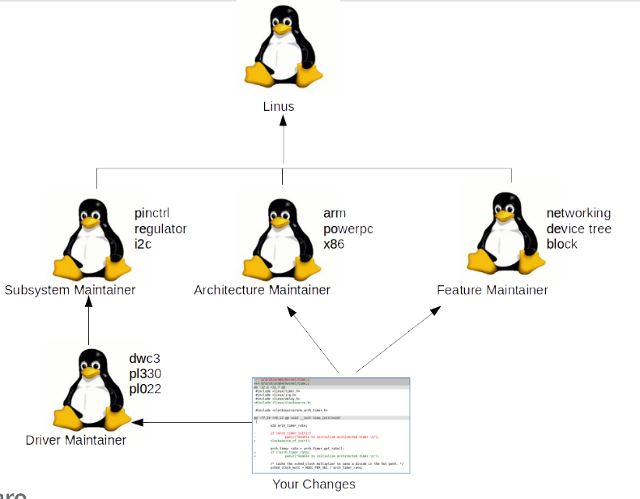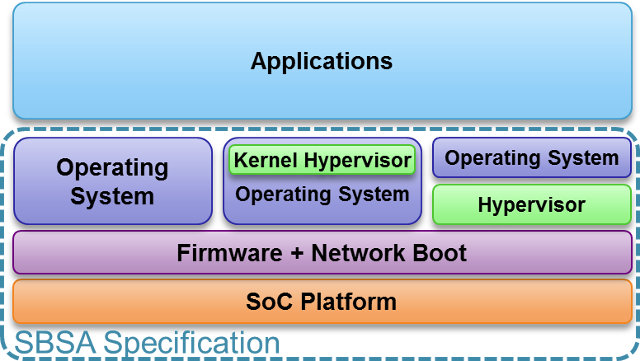Linaro 14.03 has just been released with Linux Kernel 3.14-rc7 (baseline), Linux Kernel 3.10.33 (LSK), and Android 4.4.2. This month, I could not find any major changes or updates, but work has been performed on big.LITTLE, Samsung Arndale / Arndale-octa, HiSilicon K3V2 and D01 boards and Broadcom Capri hardware, as well as ARMv8 models. Here are the highlights of this release: Linaro Stable Kernel (LSK) 3.10.33-2014.03 big.LITTLE support – ARM MP patch set, IKS (ARMv7 only). Interactive scheduler enhancements ARMv8 features – CPU frequency scaling, CPU topology, CPU suspend Power efficient workqueue support Android v3.10 patch set from AOSP GATOR ARMv8 4xA57 4xA53 FVP (Fixed Virtual Platform) and Versatile Express TC2 support Linux Linaro 3.14-rc7-2014.03 GATOR version 5.17 Android topic (linaro-android-3.14-merge) updated to get the recent code from AOSP uprobes v7 (new version) Updated big-LITTLE-pmu topic from ARM LT (Landing team) Updated basic Capri board support from Broadcom LT (bcm590xx […]
OpenCL Accelerated SQL Database with ARM Mali GPU Compute Capabilities
We’ve previously seen GPU compute on ARM could improve performance for mobile, automotive and consumer electronics application. GPU compute offload CPU task that can be parallelized to the GPU using APIs such as OpenCL or RenderScript. Most applications that can leverage GPU compute are related to media processing (video decoding, picture processing, audio decoding, image reconigion, etc…), but one thing I did not suspect could be improve is database access. That’s what Tom Gall, Linaro, has achieved in a side project by using OpenCL to accelerate SQLite database operations by around 4 times for a given benchmark. The hardware used was a Samsung Chromebook with an Exynos 5250 SoC featurig a dual core Cortex A15 processor and an ARM Mali T604 GPU. CPU compute is only possible on ARM Mali T6xx and greater, and won’t work on Mali 400 / 450 GPUs. Other GPU vendors such as Vivante and Imagination […]
Huawei D01 Server Board Features 16 ARM Cortex A15 Cores with up to 64 GB RAM, 3 SATA, 2 GbE Ports
During Linaro 14.02 release, I noticed a Huawei D01 board with 16 ARM Cortex A15 core, but details were lacking. Charbax was a Linaro Connect Asia earlier this month, and he could film the board in action, and interview the development team about this server board, and software development. Huawei D01 specifications: Processor HiSilicon SoC with16 x ARM Cortex-A15 CPU Core @ max. 1.5GHz (up to 84000 DMIPS) Support for CPU configuration as AMP/SMP Configurable Big or Little endian. Default: Little endian System Memory – 2x 64bit DDR3 DRAM Dual Inline Memory up to 1600 MHz, Module(DIMM) sockets:(2)&(3) . Default capacity: 8GB, upgradeable to 64GB Storage – 2x 1Gb NOR Flash, 2x 512MB NAND Flash, 3x SATA III for 2.5″ hard drives or SSD, 1x SD card Connectivity – 2x 10/100/1000Mbit/s Gigabit Ethernet ports, 1x 10/100Mbit/s FE port Other Peripheral Interfaces 2x USB 2.0 Host ports 2x UART, 4x I2C, […]
Linux Kernel Upstreaming How-To – Linaro Connect Asia 2014
I’ve already written a post about submitting kernel patches to mainline based on a 2011 presentation by Greg Kroah-Hartman, but Matt Porter, Broadcom Landing Team (LT) Technical Lead at Linaro, has given two updated talks entitled “Upstreaming 101” and “Upstreaming 201” at Linaro Connect Asia 2014. There are many planned talked during LCA 2014, and you can get the list as well as links to presentation and videos, as they become available on LCA 14 resources page. The first session “Upstream 101” starts with some definitions such as “upstreaming” (basically getting your code to kernel.org), “mainline”, etc, explains how to get information about the (912) maintainers (tip: it’s in the MAINTAINERS file), how to deal with the 2-week merge windows occurring every 10 weeks or so, but the bulk of the talk detailing the work flow required to upstream code to the Linux kernel. There are basically 5 steps: Preparation – Read […]
Linaro Connect Asia 2014 Opening Keynote – Status and Future of ARMv8 Linux & Android [Video]
Linaro Connect Asia 2014 has just started in Macau today and will take place until Friday. You can follow the sessions live and/or their recordings via Linaro OnAir YouTube Channel. I’ve watched the opening keynote, and embedded the video at the bottom of this post. The keynote focuses on ARMv8 for Linux and Android on servers, mobile devices, digital home, and more, and involves two main speakers: George Grey, Linaro CEO , and Jon Masters, Chief ARM Architecture at Red Hat. The speaker beginning of the video provides some practical information and the schedule for Linaro Connect. The keynote itself really starts around 15:50 with George Grey who spends the first 10 minutes introducing the latest Linaro members: Qualcomm, Mediatek, ZTE, AllWinner and Comcast. He then talks about the new Mobile sub-committee (MOBSCOM) that will focus on big.LITTLE, Android optimization and Android on ARMv8, as well as the soon-to-be-announced Linaro […]
Linaro 14.02 Release with Linux Kernel 3.14 and Android 4.4.2
Linaro 14.02 has just been released with Linux Kernel 3.14-rc3 (baseline), Linux Kernel 3.10.30 (LSK), and Android 4.4.2 r2. There are been a lot of patches for Linaro members boards, and including the latest GTS big.LITTLE processing patch, as well as speeds up to Android 4.4 performance. There’s also a Linux image (password protected) for Huawei D01 board with a 16-core ARM Cortex A15 @ 1.5 GHz SoC with up to 64 GB memory, that must be an unannounced SoC for base stations or other network equipment. This month Linaro also made two important announcements: Qualcomm is now a Linaro member, and the Linaro Security Working Group (SWG) has been setup to develop open source secure software for the ARM architecture. The first projects will be reference implementations of the W3C Embedded Media Extension (EME), and secure boot for the 64-bit ARM Cortex-A series processors. They’ll also work on security […]
ARM Unveils Server Base System Architecture Specification (SBSA) to Standardize ARM based Servers
64-bit ARM based servers should hit the market later this year or earlier in 2015 with SoCs such as Applied Micro X-Gene or AMD Opteron A1100. ARM still has the lead in terms of efficiency with a lower dollar per watt ratio, but Intel is closing in with their new Avoton server-on-chips. However, there’s one aspect where Intel is clearly in the lead: standardization and compatibility. ARM is very flexible, and allow SoC designers to create more or less what they want, but it comes at the cost that most ARM based systems are not capable of running mainline Linux, and instead use vendor trees. With many applications, that may not be critical, but when it comes to data-centers, companies want to be able to run the latest Linux version with the latest security patches as soon as possible, and want to lower the total cost of ownership (TCO), so […]
Linaro 14.01 Release with Linux Kernel 3.13 and Android 4.4.2
The first release of the year, Linaro 14.01, is now out with Linux Kernel 3.13 (baseline), Linux Kernel 3.10.28 (LSK), Android 4.4.2, and Ubuntu Linaro 14.01. The most important part of this release is support for Arndale Octa, which makes big.LITTLE processing code available to a low cost platform. Android 4.4.x is now on par with Android 4.3 in terms of support. Linaro has also decided to provide quarterly stable released with GCC, and Linaro GCC 4.7-2014.01 is the first quarterly stable release with the next one planned with Linaro 14.04. Here are the highlights of this release: Linaro Stable Kernel (LSK) 3.10.28-2014.01 with latest version of GTS patch set for big.LITTLE, and Android support Linux Linaro 3.13-2014.01: gator version 5.17 updated linaro-android-3.13-merge topic by John Stultz, the “Revert “PM / Sleep: Require CAP_BLOCK_SUSPEND to use wake_lock/wake_unlock” patch included uprobes v4 updated big-LITTLE-pmu topic from ARM Landing Team (LT) updated […]







